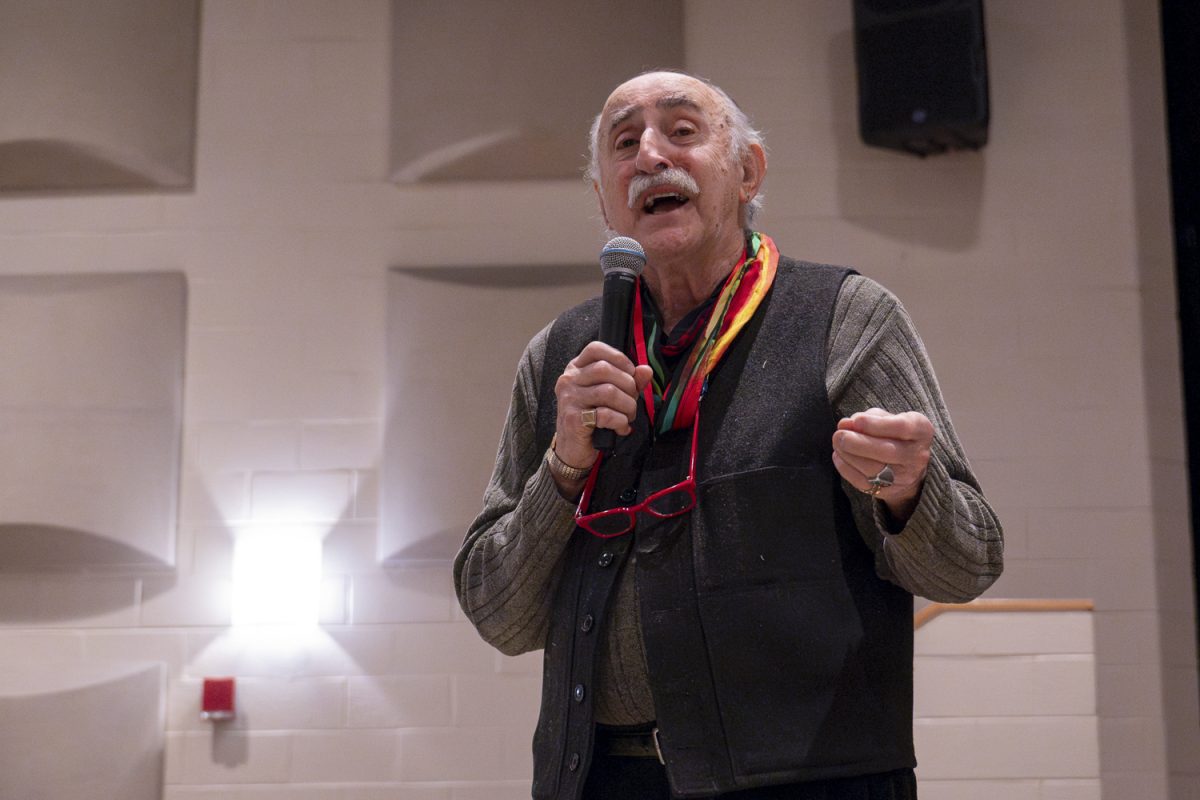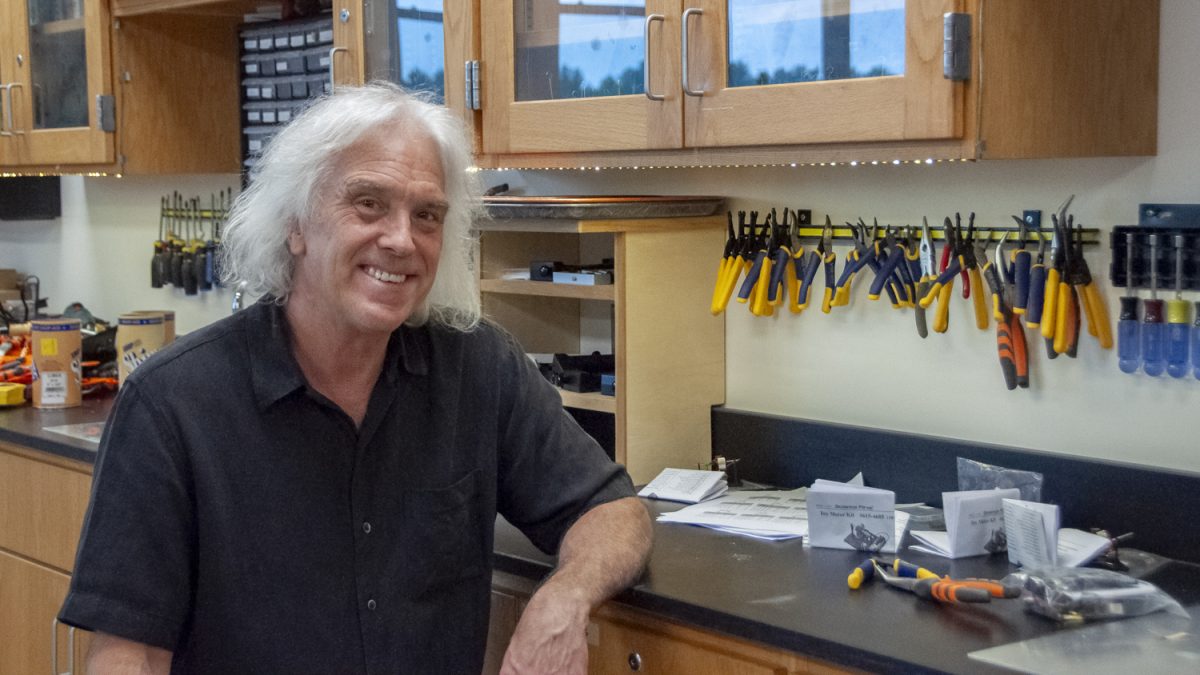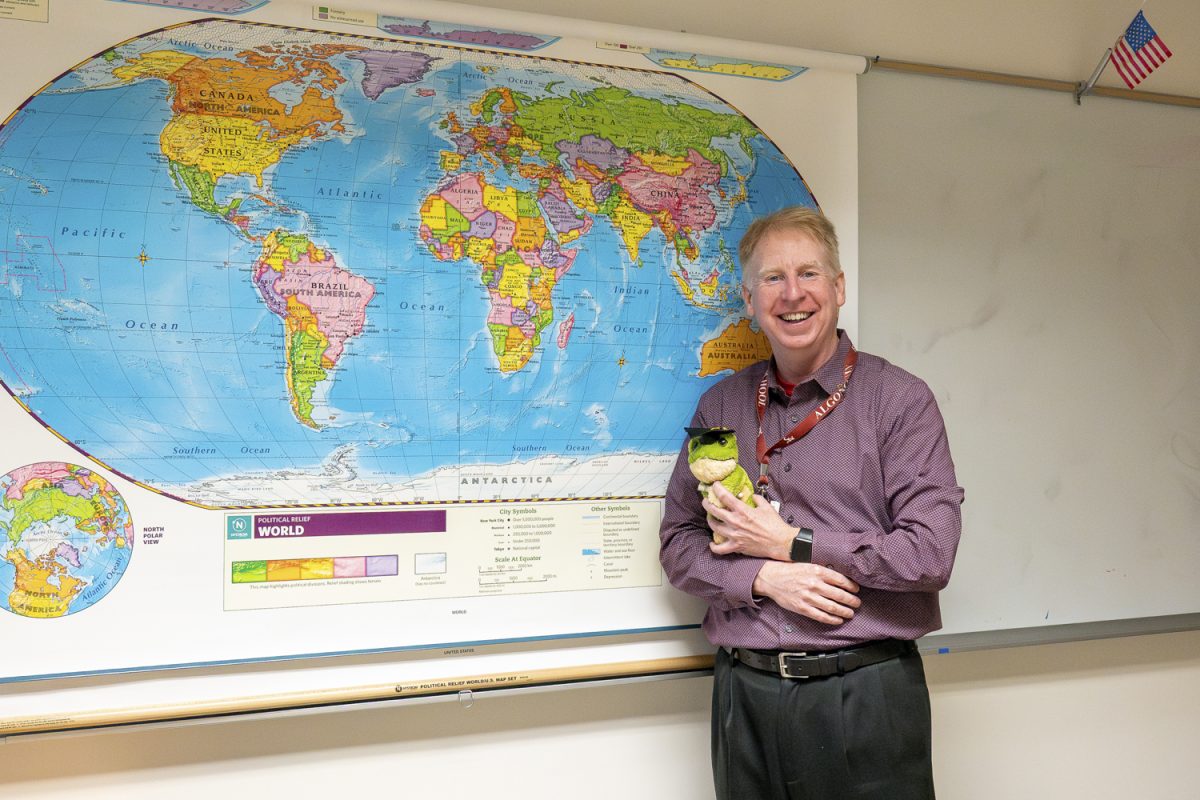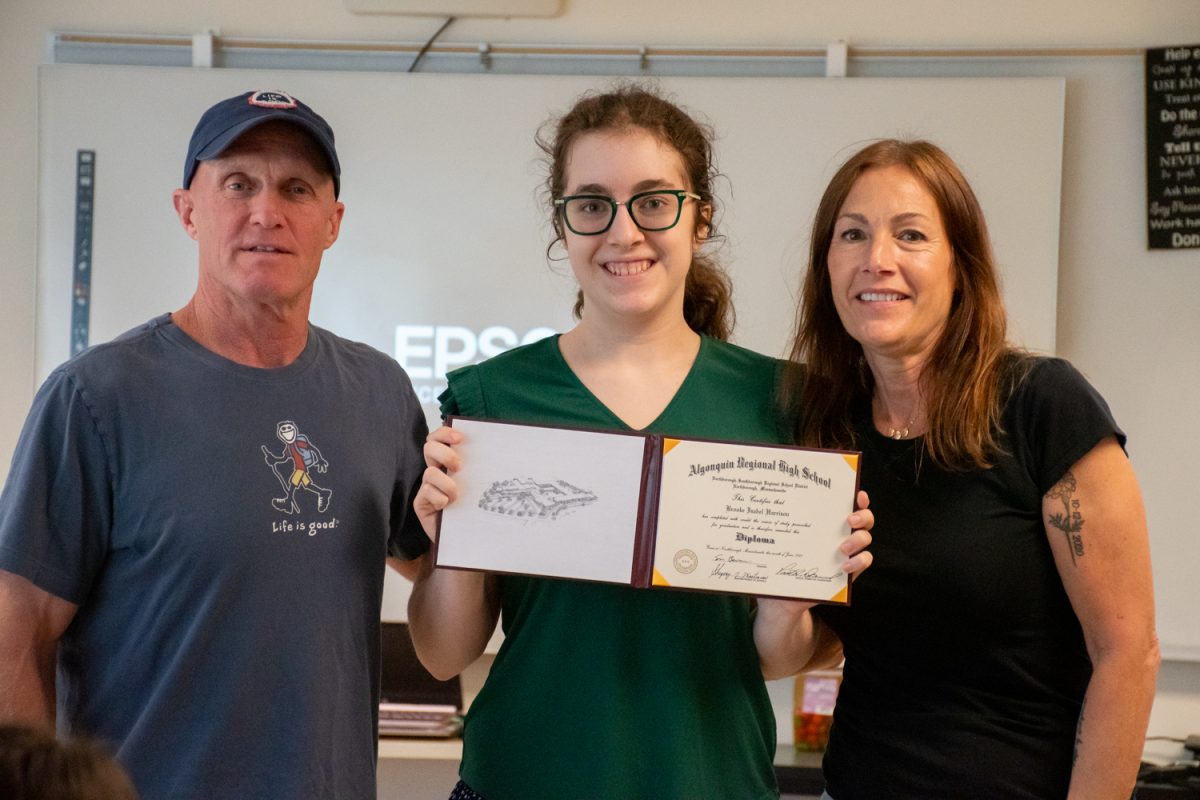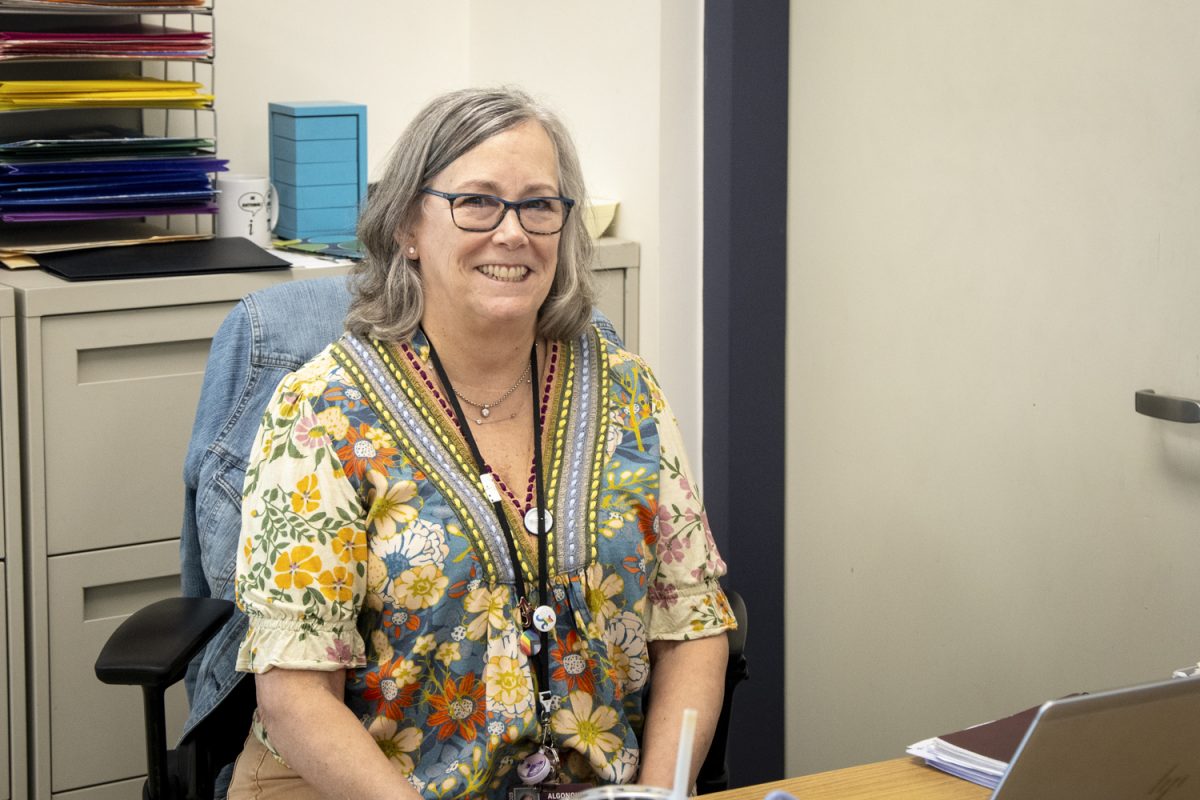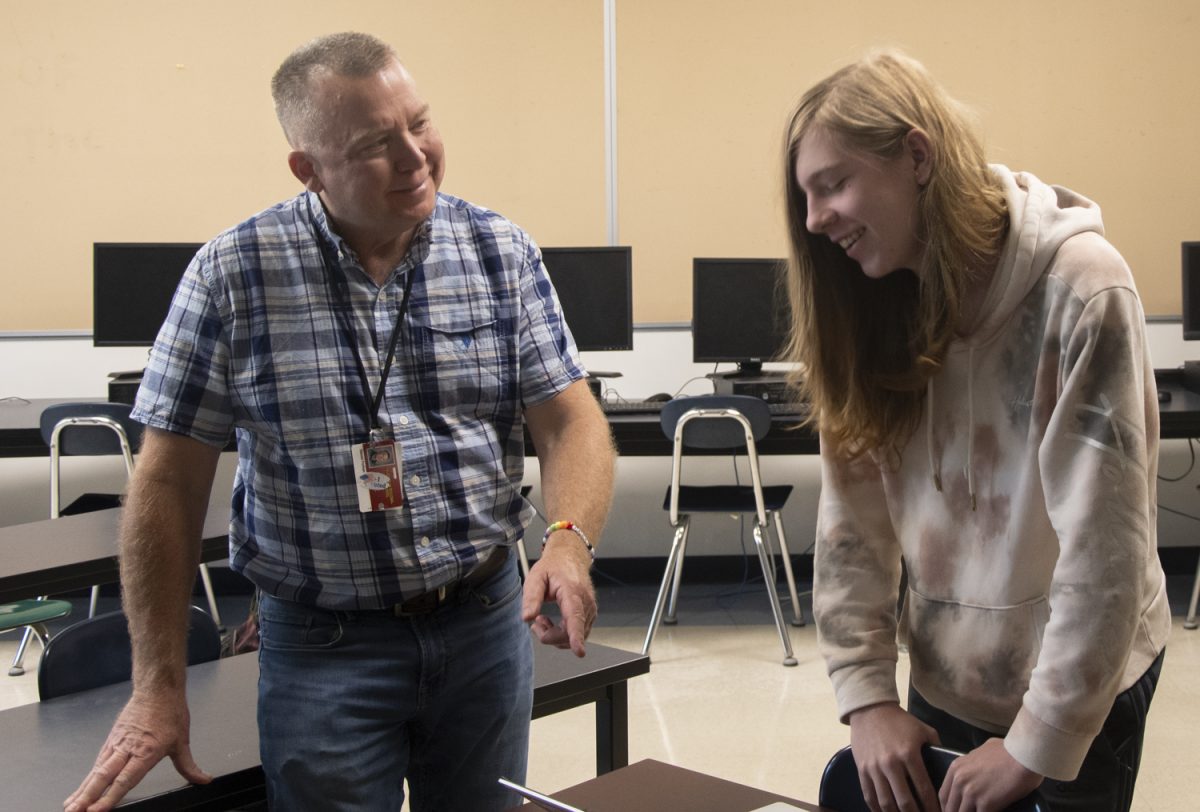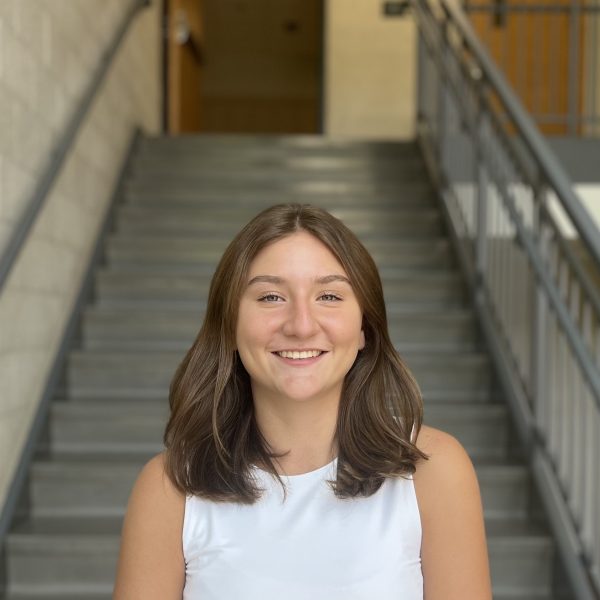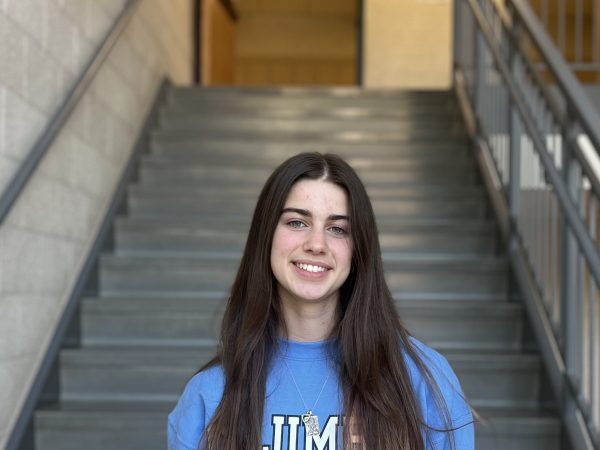Holocaust survivor Jack Trompetter opened the eyes of the junior class on March 27, emphasizing the power of choice and action.
Trompetter was born in Amsterdam, Netherlands in 1942, when the Nazis had already begun to spread their ideas of antisemitism across Europe. His parents made the decision to give their son up to a Christian family and go into hiding. This family raised Trompetter until the age of three and he was reunited with his parents once World War II ended.
Jeff Smith, the organizer from Facing History & Ourselves, works with teachers around Massachusetts to teach how to stand up to racism, antisemitism and other forms of hate. Facing History & Ourselves explores different historical events in-depth and discusses the moral issues that are raised. This organization presented the opportunity for Trompetter to make his way to Algonquin to speak to the junior class.
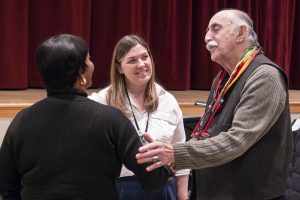
Trompetter opened up his speech by driving home the idea that the Holocaust was a tragic event due to the decisions made by certain people.
“People make choices, choices make history,” Trompetter said.
As Trompetter spoke about beatings his father endured even before he was born, he noted that the Nazis were always yelling no matter the situation, a tactic used to disrupt their focus.
“They were trying to keep you off your game, it was all about intimidation,” Trompetter said.
As more people were being arrested or put into camps, the elderly people seemed to leave and never come back.
“My parents knew [the elders] were going to be murdered, and could do nothing about it,” Trompetter said. “[The camps were] like a bank account for human beings being traded as hostages.”
Trompetter believes that it is important to tell his story to as many different audiences as possible so the past is never forgotten.
“I have the responsibility to share my story, because there will be a time when no one is alive to share it,” Trompetter said.
Trompetter also expressed that we are not just individuals living in the same area, but rather a community of people. We all have to work together and help each other out to survive.
“We are all organisms,” Trompetter said. “We do well if we all do well.”
Trompetter has been through many horrifying events in his life, so he made sure to have an outlet, and for him that’s art.
“I am an artist, so it’s been my safe place my whole life,” Trompetter said. “While I paint, I don’t think about the bad things…the process makes me feel really good. I’m lucky that I have that.”
Social Studies Department Head Brittney Burns has been calling Trompetter to speak to her Holocaust and Human Behavior class since 2013. She believes that inviting him to speak is important because it allows students to hear history from the people who experienced it and lived it.
“Sometimes when we learn about things in history class, it feels far away,” Burns said. “It’s from a textbook or from a movie and it doesn’t always feel like a real story that happened to real people. Part of it is humanizing and putting those individual faces to a story.”
Junior and student from the Holocaust and Human Behavior class Simon Linden shared a similar view.
“[The Holocaust] was humanized to me,” Linden said. “Previously, I just heard about it in books, I only read about it in classes or saw YouTube videos about it, and it felt like such an outside thing that it wouldn’t really affect me. Hearing this first-hand perspective, it feels more human, and I feel connected to it. It amplifies the horribleness of the disaster.”
Burns also feels that Trompetter’s story emphasizes a degree of agency and choice, a theme that Trompetter highlighted as well.
“It’s also about starting to think about our own role and the choices that we all make as individuals, especially when it comes to protecting the rights of other people or people who maybe are marginalized or don’t have as much power or influence in society,” Burns said.
After hearing Trompetter’s story, junior and student from the Holocaust and Human Behavior class Maddison Wilson felt moved to be more active in her community.
“It’s so valuable to hear someone talk about their experiences,” Wilson said. “It really motivates me to do better and get back to my community, and stay politically aware, so we can make sure that this doesn’t happen again.”
Junior Lilah Peters also felt Trompetter’s presentation was extremely powerful, showing her a different perspective from what she already knew.
“I haven’t heard about a lot of people who were forced to go into hiding because they were Jewish,” Peters said. “It really showed me how difficult it can be, especially for children, because a lot of them don’t know what’s going on or don’t realize that they aren’t their actual family.”
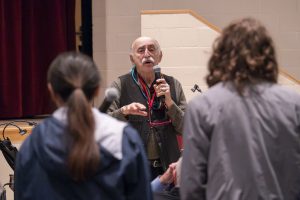
Trompetter included instances of human empathy and kindness in his story which impacted the way the audience connected with his personal anecdote.
“I was moved by the amount of things that had to go right for, even for just one individual to survive in this horrible tragedy,” Linden said. “I was moved by the kindness of people in the story during a time where it was so socially accepted to be a horrible person.”
Trompetter hopes that in the future, more people will learn from his experience and understand the importance of taking action.
“We are born into an imperfect world, and it’s our responsibility to repair the broken world,” Trompetter said. “Be kind. Be kind. Be kind.”



